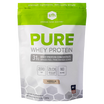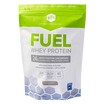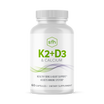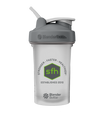We wanted to take a complex issue and break it down into something a bit easier to understand. So, if you’re wondering are carbohydrates sugars, join us as we dive into this topic.
Technically the simple answer is yes! That said, the devil is in the details. Let’s take an extreme example. A potato is a carbohydrate. It is composed of polymers or simple sugars that are digested to sugar and absorbed as sugar.
Potatoes also contain fiber (soluble and insoluble fiber). Again fiber is a carbohydrate as well. Thus, if you want to call a carbohydrate a sugar then a potato is 100% sugar. The nutrition facts, technically for a potato should say 100% sugar and thus a good sized baked potato should never be eaten! Many vegetables have fiber and carbohydrates and are thus technically sugar-laced foods.
All of these “food carbohydrates“ have different glycemic index numbers. Healthy foods are or should be based on the glycemic index, and more precisely, insulin index. While it’s true that chemically a carbohydrate is a sugar, carbohydrates differ in their effects on insulin release and fat storage and their ability to contribute to obesity. Classifying a carbohydrate as a sugar just tends to confuse the consumer and does little to promote good health practices.
Another complexity is that even simple sugars can be totally different. Take the example of ribose vs. table sugar. Table sugar has a glycemic index of 100. Ribose has a negative glycemic index. Despite this difference, both ribose and table sugar are chemically sugars with different glycemic and insulin indexes.
The consumer has grown to believe that carbohydrates are different from sugar. But the fact is, the RDA (recommended daily allowance) of a sugar and a carbohydrate are different. So if you’re asking are carbohydrates sugars, how could they be?
Nutrition facts need to be accurate. That said they should not be misleading or confusing to the consumer. Classifying a carbohydrate as a sugar is confusing to the consumer.





















Leave a comment
This site is protected by hCaptcha and the hCaptcha Privacy Policy and Terms of Service apply.